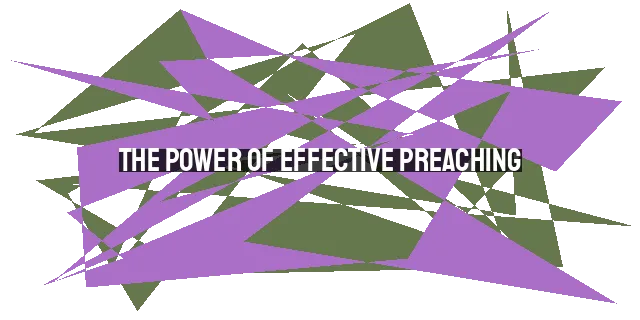Understanding Structural Racism: A Biblical Perspective
Understanding Structural Racism through a Biblical Lens
Structural racism, also known as systemic racism, is a concept that often sparks controversy and division. However, as Bible-shaped individuals, it is crucial for us to examine this issue from a biblical perspective. In this article, we will explore the idea that if our minds are saturated with the Word of God, we should expect to see structural racism in a fallen world. Let's delve deeper into this topic and uncover the truth hidden within the pages of Scripture.
The Reality of Sin and its Effects
Before we can fully grasp the concept of structural racism, we must first acknowledge the reality of sin. Sin entered the world through the disobedience of Adam and Eve, and its effects have permeated every aspect of creation. The Bible tells us that all have sinned and fallen short of the glory of God (Romans 3:23). This means that sin is not limited to individual actions but has the capacity to shape entire systems and structures.
Imagine a beautiful garden that has been tainted by the presence of weeds. These weeds not only affect individual plants but also impact the overall health and productivity of the garden. Similarly, sin has infiltrated our world, corrupting not only individuals but also societal structures. This corruption manifests itself in various forms, one of which is structural racism.
The Biblical Case for Structural Racism
As we examine the pages of Scripture, we encounter numerous instances where injustice and discrimination are prevalent. In the Old Testament, the Israelites themselves were enslaved and oppressed in Egypt for four hundred years. This systemic oppression was not merely the result of individual Egyptians' actions but was embedded within the structure of the Egyptian society.
Furthermore, the Bible is filled with examples of God's people being called to confront systems of injustice. The prophets consistently spoke out against the mistreatment of the poor, the marginalized, and the foreigner. They condemned rulers and authorities who exploited their power and perpetuated injustice. These examples serve as a reminder that structural sin, including racism, is deeply rooted in the fallen world we inhabit.
Understanding Structural Racism Today
Now, let's bring our understanding of structural racism into the present day. In the context of the 21st century, structural racism refers to the systems, policies, and practices that perpetuate racial inequality and discrimination. It encompasses not only overt acts of racism but also the subtle biases embedded within societal structures.
For example, consider the criminal justice system. Research has consistently shown that people of color, particularly African Americans and Hispanics, are disproportionately targeted and treated unfairly within this system. This is not merely the result of a few biased individuals but is reflective of systemic issues deeply ingrained within the system itself.
Structural racism is not limited to the criminal justice system alone. It can also be observed in areas such as education, housing, healthcare, and employment. These systems, intentionally or unintentionally, create barriers and disadvantages for racial and ethnic minorities, perpetuating inequality and limiting opportunities for advancement.
The Role of Bible-Shaped Individuals
As Bible-shaped individuals, we are called to be agents of change in a broken world. The Bible teaches us that we are all created in the image of God, and as such, we are called to love and value every human being, regardless of their race or ethnicity. Our faith compels us to actively combat injustice and work towards dismantling the structures that perpetuate racism.
Jesus himself exemplified this in his ministry. He consistently challenged societal norms and confronted the religious leaders of his time who perpetuated discrimination and exclusion. Jesus' teachings and actions remind us that our faith is not just about personal salvation but also about actively pursuing justice and righteousness.
Practical Steps Towards Change
So, what can we do as individuals to combat structural racism? Here are a few practical steps we can take:
- Educate ourselves: Take the time to learn about the history of racism and its impact on marginalized communities. Read books, listen to podcasts, and engage in conversations that broaden your understanding.
- Examine our own biases: We all have biases, whether conscious or unconscious. Reflect on your own prejudices and work towards challenging and dismantling them.
- Advocate for change: Use your voice and influence to advocate for policies and practices that promote equality and justice. Support organizations and initiatives that are actively working towards racial reconciliation.
- Build relationships: Seek out opportunities to build relationships with individuals from different racial and ethnic backgrounds. Engage in meaningful conversations, listen to their experiences, and learn from their perspectives.
- Pray: Prayer is a powerful tool for transformation. Pray for wisdom, guidance, and a heart that seeks justice and reconciliation.
By taking these steps, we can actively participate in the work of dismantling structural racism and promoting a more just and equitable society.
Conclusion
Structural racism is a complex and deeply rooted issue that requires our attention and action. As Bible-shaped individuals, we should expect to see the effects of sin, including structural racism, in a fallen world. However, we are not called to passively accept this reality. Instead, we are called to be agents of change, actively working towards dismantling the systems and structures that perpetuate racism and inequality. Through education, self-reflection, advocacy, relationship-building, and prayer, we can contribute to the ongoing work of racial reconciliation and justice. Let us be a generation that stands against injustice and embraces the biblical call to love and value every human being.



POST COMMENT
For post a new comment. You need to login first. Login
COMMENTS(0)
No Comment yet. Be the first :)